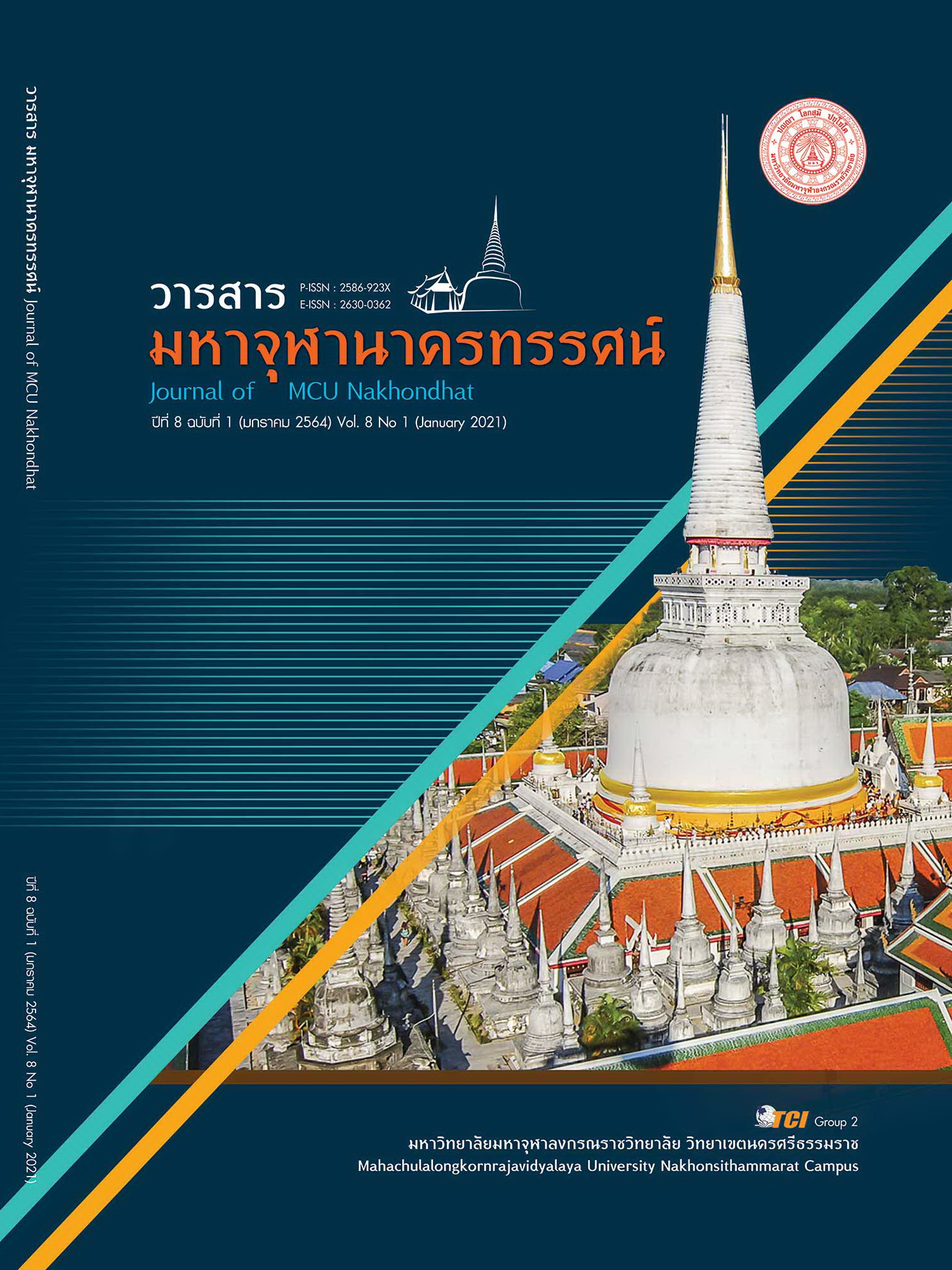EXPLORATORY AND CONFIRMATORY FACTOR ANALYSIS ON VALUES OF PROFESSIONAL LEARNING COMMUNITY OF TEACHERS UNDER THE JURISDICTION OF OFFICE OF THE BASIC EDUCATION COMMISSION IN THREE SOUTHERN BORDER PROVINCES
Main Article Content
Abstract
The Objectives of this research article were to 1) analyze exploratory factors on values of Professional Learning Community of teachers under the jurisdiction of the Office of the Basic Education Commission in three southern border provinces, and 2) analyze confirmatory factors on values of Professional Learning Community of teachers under the Jurisdiction of Office of the Basic Education Commission in three southern border provinces. The sample contained 855 respondents: school administrators, heads of the academic department, and teachers coping with the Professional Learning Community approach. The research instrument was conducted via a five - point rating scale questionnaire for the values of Professional Learning Community of teachers under the Jurisdiction of Office of the Basic Education Commission in three southern border provinces, with the reliability of 0.993. The findings of this study indicated that Exploratory Factor Analysis on the values of Professional Learning Community of teachers under the Jurisdiction of Office of the Basic Education Commission in three southern border provinces comprised four factors: 1) leaded integrity, 2) work compassion, 3) empower belief sharing, and 4) work place accountability. In addition to the confirmatory factor analysis on Professional Learning Community of teachers under the jurisdiction of Office of the Basic Education Commission in three southern border provinces, the results supported by fit indices testing of the structural model were fit with the empirical data. When considering Chi - square value, there was no statistically significant difference ( x2 = 0.06, df = 1, p = 0.000), GFI and AGU greater than .90, and SRMR less than .05.
Article Details
References
ชาตรี ฝายคำตา. (2561). หันมองการผลิตและพัฒนาครูของประเทศไทยผ่านเลนส์ของนักครุศึกษา. วารสารศึกษาศาสตร์ มหาวิทยาลัยนเรศวร, 20(4), 291-298.
พฤหัส คงเทศ. (2562). รูปแบบการนิเทศภายในที่สงผลต่อสมรรถนะการจัดการเรียนรู้ของครูในโรงเรียนสังกัดสำนักงนเขตพื้นที่การศึกษาประถมศึกษา พิษณุโลก เขต 1. วารสารศึกษาศาสตร์ มหาวิทยาลัยนเรศวร, 21(2), 198-210.
เมธาวรินทร์ สัจจะบริบูรณ์ และศัลยพงศ์ วิชัยดิษฐ์. (2558). การศึกษารูปแบบการเรียนรู้ภวันตภาพสำหรับ ห้องเรียนกลับด้าน: กรณีศึกษามหาวิทยาลัยราชภัฏนครปฐม. ใน การประชุมวิชาการระดับชาติมหาวิทยาลัยราชภัฏนครปฐม ครั้งที่ 7 จังหวัดนครปฐม. มหาวิทยาลัยราชภัฏนครปฐม.
วรลักษณ์ ชูกำเนิด. (2557). รูปแบบชุมชนการเรียนรู้ทางวิชาชีพครูสู่การเรียนรู้ในศตวรรษที่ 21 บริบทโรงเรียนในประเทศไทย. วารสารหาดใหญ่วิชาการ, 12(2), 123-134.
สุกิจ คูชัยสิทธิ์. (2556). การเข้าสู่โลกยุคใหม่ของข้อมูล “บิ๊กดาต้า”. วารสารนักบริหารมหาวิทยาลัยกรุงเทพฯ, 33(1), 22-25.
สุภมาส อังศุโชติ. (2554). สถิติวิเคราะห์สำหรับการวิจัยทางสังคมศาสตร์และพฤติกรรมศาสตร์: เทคนิคการใช้โปรแกรม LISREL. กรุงเทพมหานคร: เจริญดีมั่นคงการพิมพ์.
อัญชลี สุขในสิทธ์. (2560). การประเมินความต้องการจำเป็นในการพัฒนาสมรรถนะครูในศตวรรษที่ 21. กรุงเทพมหานคร: มหาวิทยาลัยศรีนครินทรวิโรฒ.
Birman, B. F. et al. (2000). Designing Professional Development that Work. Educational Leadership, 57(8), 28-33.
Guskey, T. R. (2007). Using assessments to improve teaching and learning. In D. Reevs(Ed.), Ahead of the curve: The power of assessment to transform teaching and learning. (pp. 15 - 30). Bloomingotn: Solution Tree.
Hargreaves, A. (2003). Teaching in the knowledge society: Education in the age of insecurity. New York: Teacher College Press.
Hord, S. M. (1997). Professional learning communities: Communities of continuous inquiry and improvement. Austin: Southwest Educational Development Laboratory.
Jullie, S.(2014). Organizational Climate Affecting the Professional Learning Community of Teachers under Khonkaean Municipality. In Master’s dissertation. Khon Kaen University.
Louis, K. S. (1994). Beyond “managed change”: Rethinking how schools improve. School Effectiveness and school Improvement, 9(1), 1-27.
Schmoker, M. (2004). Learning communities at the crossroads: Toward the bast Schools we’ve ever had. Phi Delta Kappan, 86(1), 84-88.
Sergiovanni, T. (1994). Building a community in schools. San Francisco: Jossey Bass.
. (1998). Leadership as pedagogy, capital development and school effectiveness. International Journal of Leadership in Education, 1(1), 37-46.


